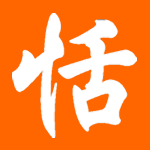Reader Mikael emails:
"Tian, my cousin just got this tattoo on his chest. He claims that it i’s a pure sound message, but I wanted to check with you, so that he hasn'’t screwed up or anything. He didn'’t want to tell me what the sound message was either, so if you know, please tell me. Best Regards."
Regardless what "sound message" he is trying to express via his tattoo, the last character 愛 (love) is
說 = speak, say, talk; to explain; to illustrate; explanation; directions; caption
龍 = dragon
愛 = love, be fond of, like


Couldn't the 說 (shuo) also be a common miswriting of 悅 (yue). Not that this helps the definition any. Happy Drangon Love rather than Saying Dragon Love. What?
ReplyDeleteAlso the 愛 doesn't so much look to be missing strokes to me. It appears to be backwards (and bad calligraphy!)
what the heck's a sound message?
ReplyDeleteThe hollow sound when he knocks on his skull.
ReplyDeleteI guess it just goes to show... when getting a tattoo from a template, make sure he's not holding it backwards...
ReplyDeleteMaybe by 'sound message' they mean the tatoo is supposed to be spoken, like an adaptation of someone's name, rather than the meaning? Just a guess.
ReplyDeleteJoy, that's exactly what I meant. I understand that there's many sound translations in chinese of geographical names etc.
ReplyDeleteMikael
In Mandarin, it's pronounced "shuo long ai". I wonder what his "sound message" is supposed to be... "so long guy"?
ReplyDeleteCould it be that he meant he was in love with guys? I have heard dragon love before in reference to homosexual relationships. On the following webpage, I found:
ReplyDelete(http://homosexuality.biography.ms/)
"In non-Western countries, an array of other terms has been employed. In ancient China various obscure poetic terms were used to describe behaviors, but not identities. These included "the passion of the cut sleeve," and "split peach" or "sharing a peach" (分桃). Other, less obscure terms have included "male trend" (男風), "allied brothers" (香火兄弟), and "masculine-dragon preference" (龍陽癖)."
anonymuous said...
ReplyDelete""masculine-dragon preference" (龍陽癖)."
Actually this 龍陽 (Longyang) refers to a historical person. Lord Longyang was a very handsome man. He was the king of Wei's lover. One day when the two men were out fishing, Longyang caught a fish and began to weep. When the king questioned him about this he reply, "When I first caught this fish,Iwas very pleased. But I then desired to throe this one back and catch a larger one. I am this first fish. All of the beauties of the land will come running to you when the hear of your favor towards me. Then I, too, will be cast back. " When the King heard this he ordered that anyone speaking to him of famous beauties of the time would be put to death with his entire family. So 龍陽癖 refers not to "masculine dragon preference" but rather "the vice of Lord Longyang."
Either way, it seems to be a bit of a stretch to try to connect this story to the tattoo about saying dragon love.
Hi. My name is Nuno, i'm portuguese and i would like to do a tattoo with my name, but i don't know how to find the translation. Can you help me.
ReplyDeleteThank you.
I am pretty sure that it is meant to mean "So long, love."
ReplyDeleteDifferent dialects and accents make the phonetic message kind of garbled, and obviously it seems funny to a Chinese speaker. But it's not random.
"I am pretty sure that it is meant to mean "So long, love.""
ReplyDeleteThat seems like a bit of a stretch because then the message is meant to be interpreted in some form of "chinglish"...
given that logic, couldn't we also just rearrange the punctuation to make the message some form of hyper-masculine phallic posturing -- a reference to penis size or stamina in bed? So Long Love!!!
I'm afraid the last character
ReplyDelete愛 (love) is mirrored.
龍陽癖 is really just a classical way of saying that someone's into catamites. Not really tattoo material.
ReplyDeletei'm glad the last anon read the post before he/she posted. in the spirit of repeating what tian has already said, i'd like also to point out that the 愛 character is mirrored.
ReplyDeleteI can't believe that nobody has pointed out yet that the 愛 is mirrored. Wake up, guys!
ReplyDeleteyou are thinking too much, do you think that an idiot who randomly chooses 3 characters (1 of them mirrored) would understand the meaning of chinese culture?
ReplyDeleteJust for your interest, 說 (shuo) isn't always a miswriting of 悅 (yue), at least in literary Chinese. E.g., Analects 1.1: 學而時習之、不亦説乎. In such cases one character is used for another, for various reasons. Here 說 is both read "yue" and means what "yue" means.
ReplyDeleteThis being said, it's doubtful if either the tattoo artist or his victim had any of this in mind. The other blunders are proof enough of that (and the mirrored "ai." ;)
Hmm, all good shit. I was having a laugh about a girl at the airport with the character
ReplyDelete平 which by itself in Japanese is read taira or flat. I'm hoping the chinese meaning is the same. She obviously wanted peace as in Japanese it is the first character for the word peace and other peace related words. No she wasn't flat.
LOL Nuno. cute name. In Japanese it means cloth
ReplyDelete布
The term for peace in Japanese (平和) is the "reverse" of what is used in Chinese (和平).
ReplyDelete